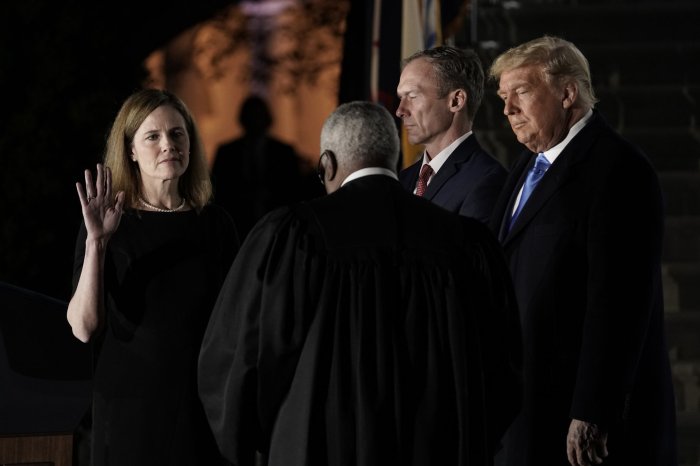The debate portion of the process comes a day after the Senate judiciary committee approved Barrett's confirmation. She needs only a simple majority of 51 votes in the full Senate for confirmation.
![]()
"Handmaids Brigade" protesters stand in front of the U.S. Supreme Court on Thursday prior to a confirmation hearing for nominee Amy Coney Barrett in the Senate judiciary committee, on Capitol Hill in Washington D.C. Photo by Leigh Vogel/UPI
Democrats are still hoping to convince four Republicans to block her nomination to the court as Ruth Bader Ginsburg's successor. Democrats on the judiciary committee boycotted Thursday's vote as a show of opposition, which resulted in a 12-0 vote by the panel's Republican members.
Trump nominated Barrett to the high court on Sept. 26, a week after Ginsburg's death. Republicans have moved quickly to confirm her before the Nov. 3 presidential election.
Democrats are expected to put up procedural roadblocks and deliver impassioned floor speeches between now and Monday, calling attention to what they say would be threats to the Affordable Care Act, abortion rights and other key issues under a Supreme Court with a 6-3 conservative edge.















